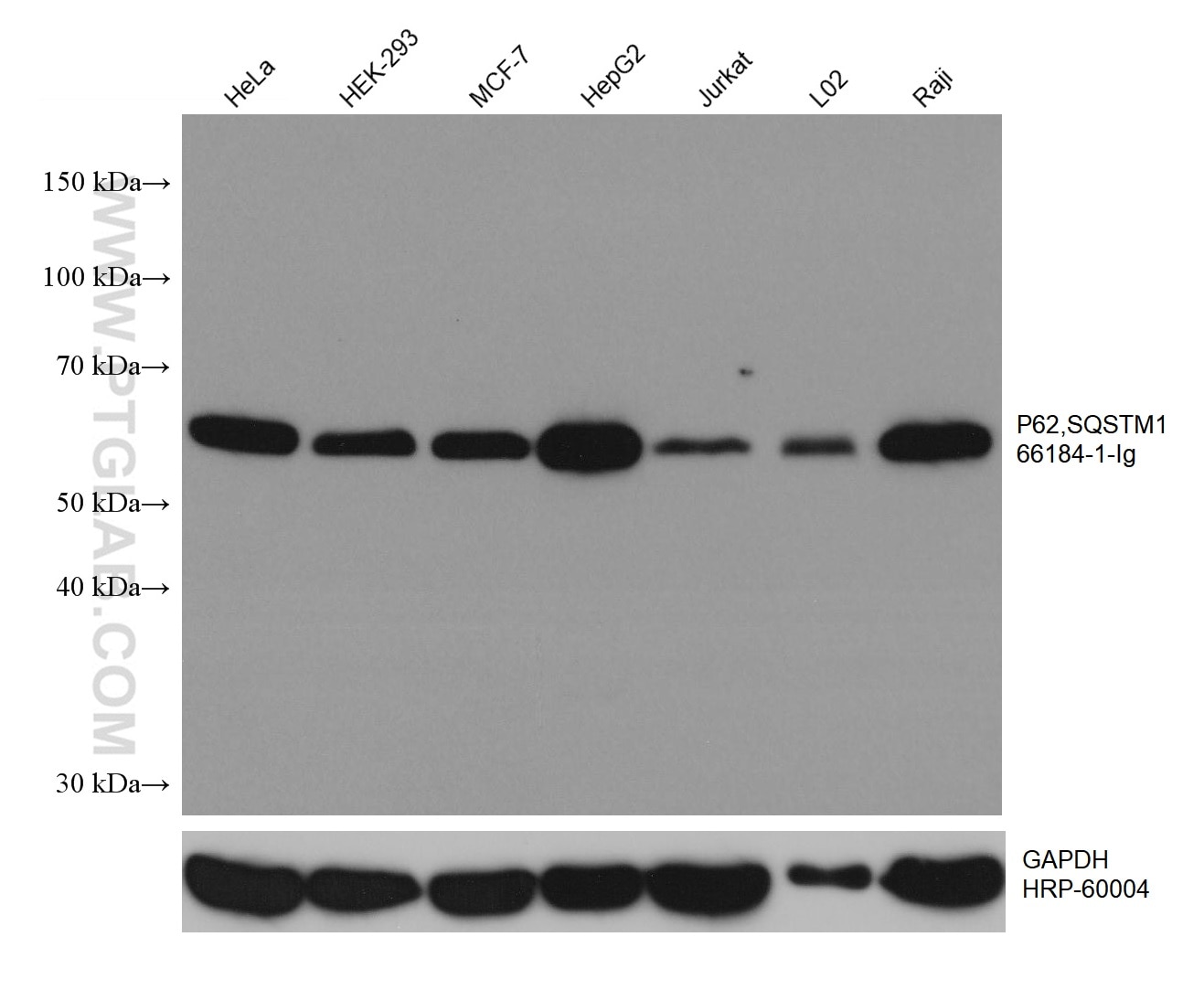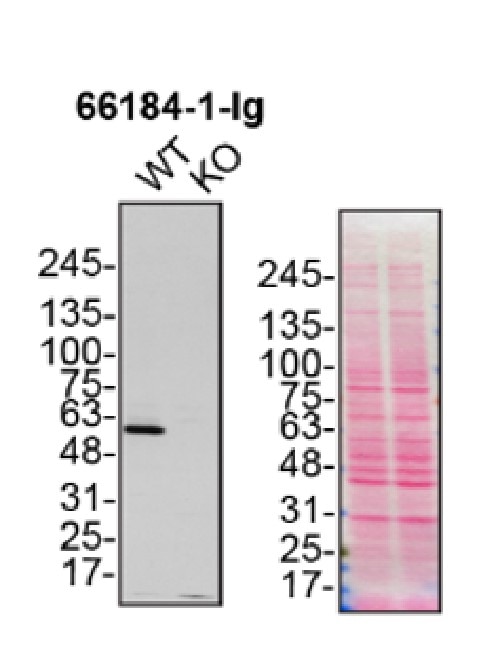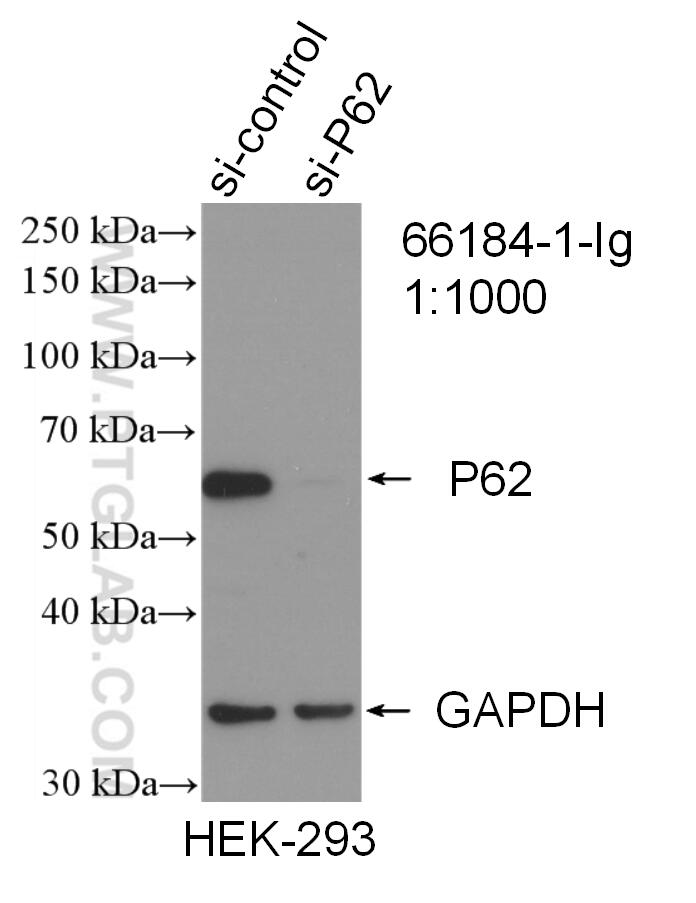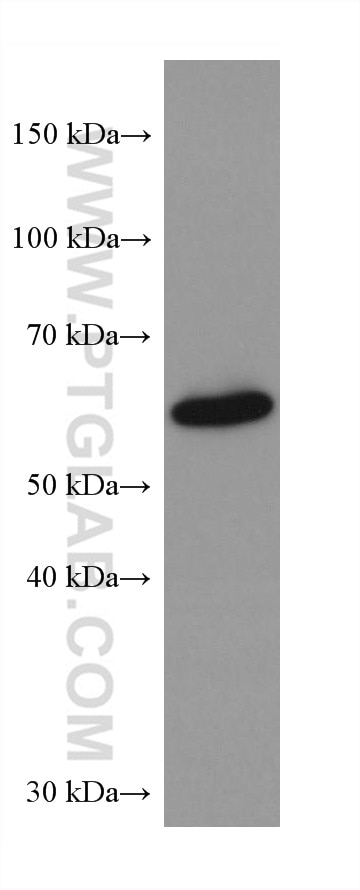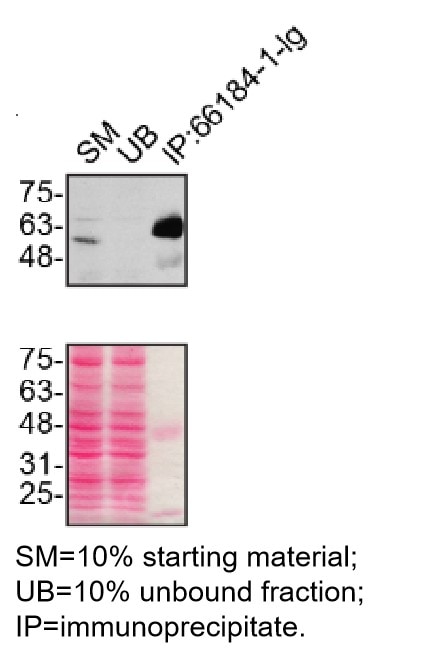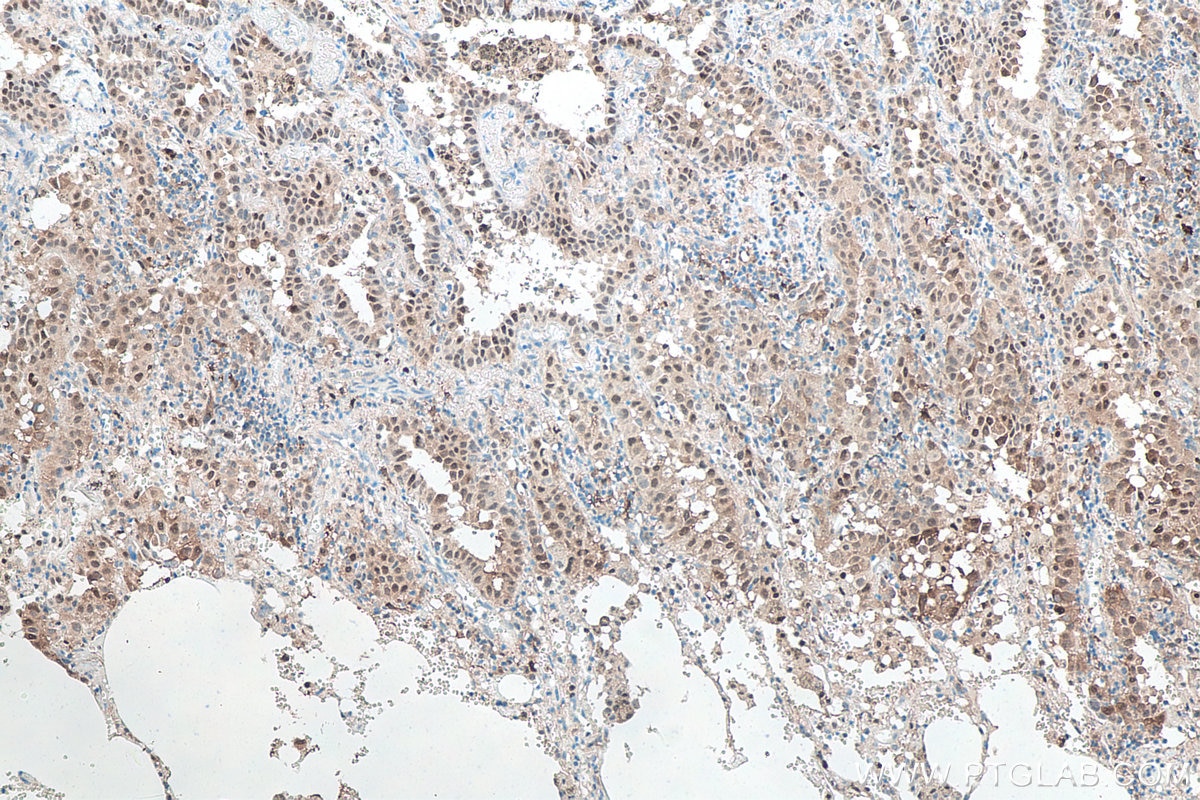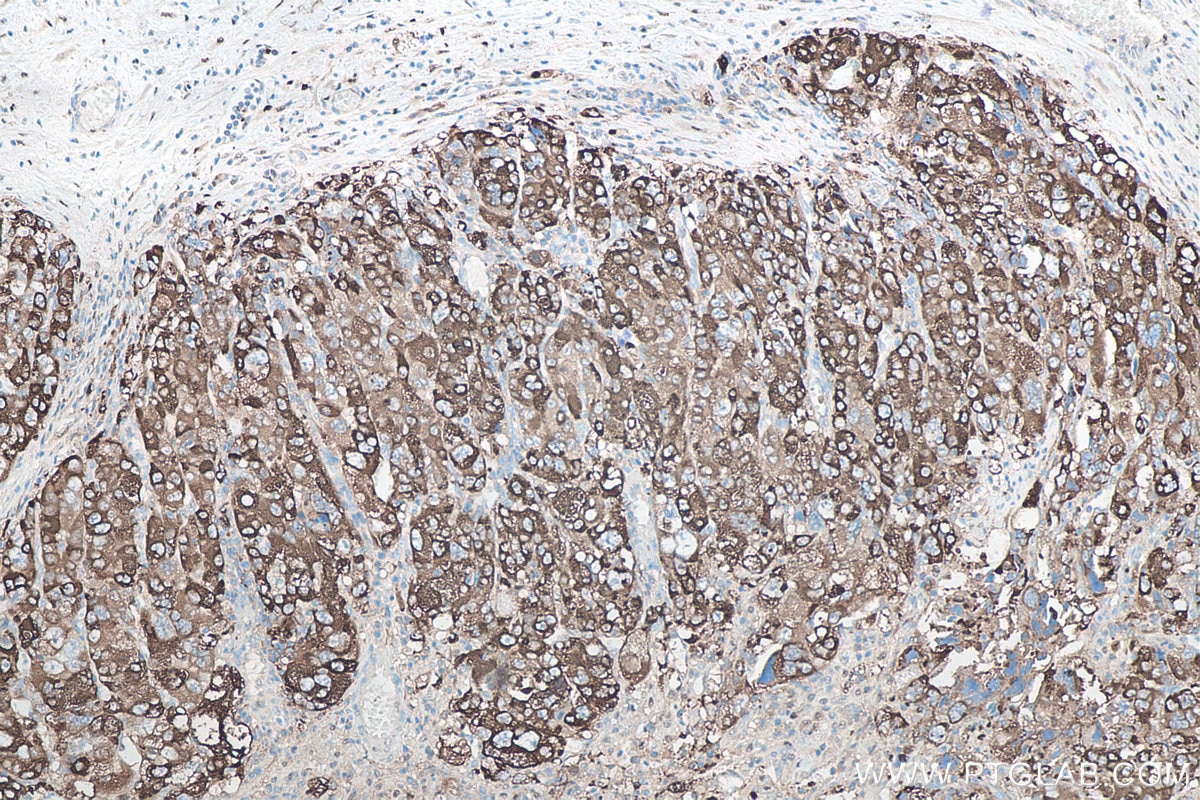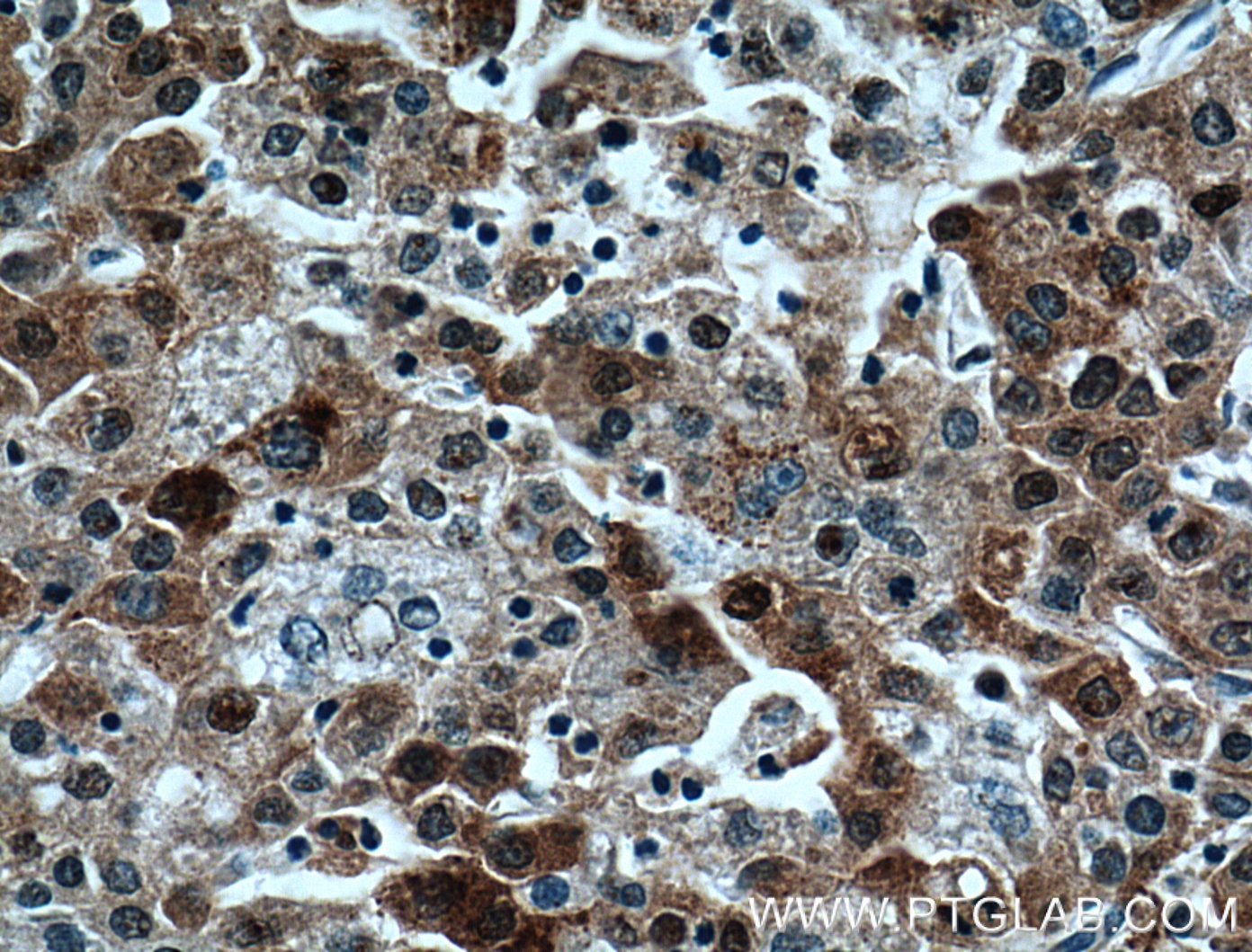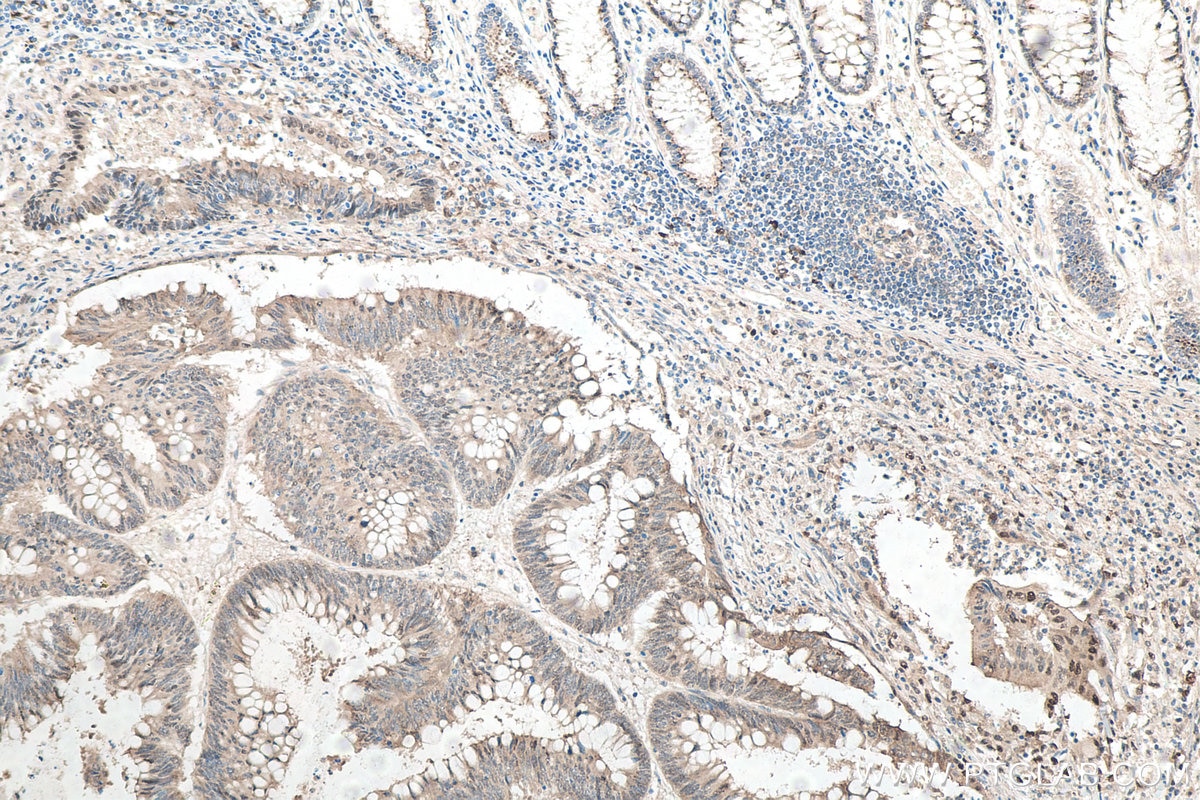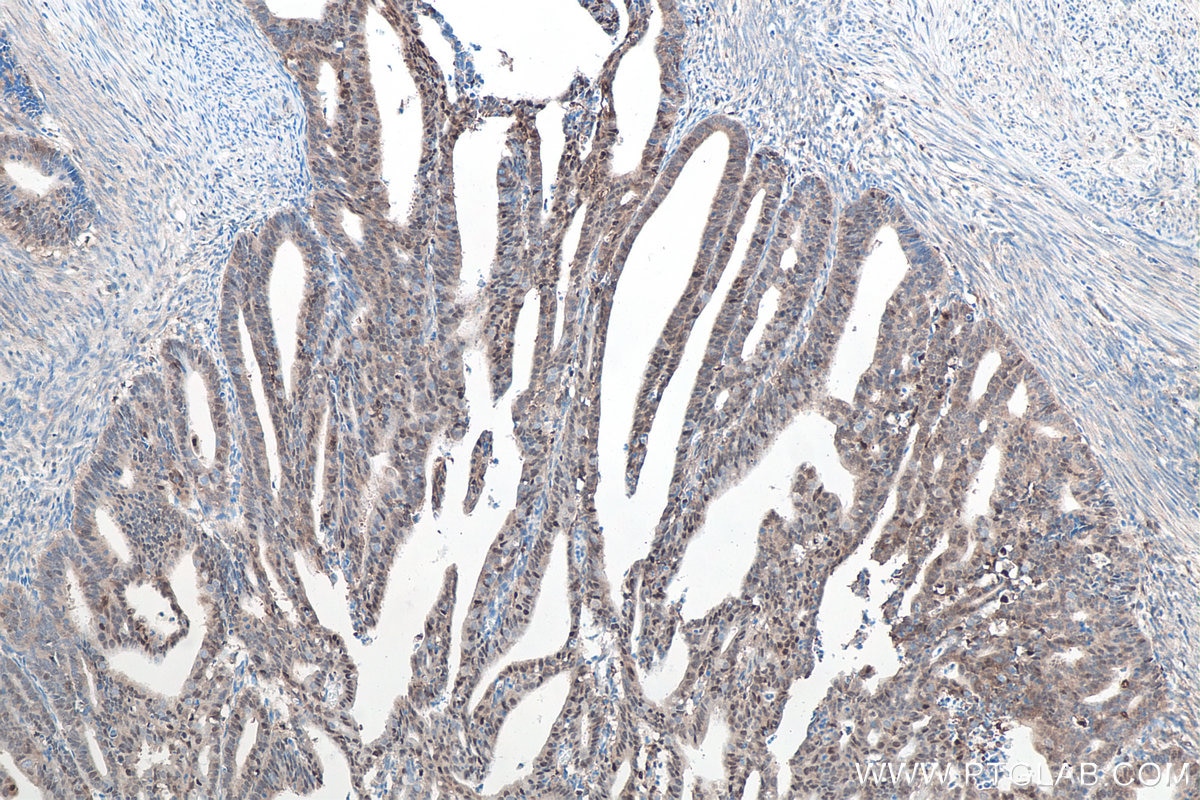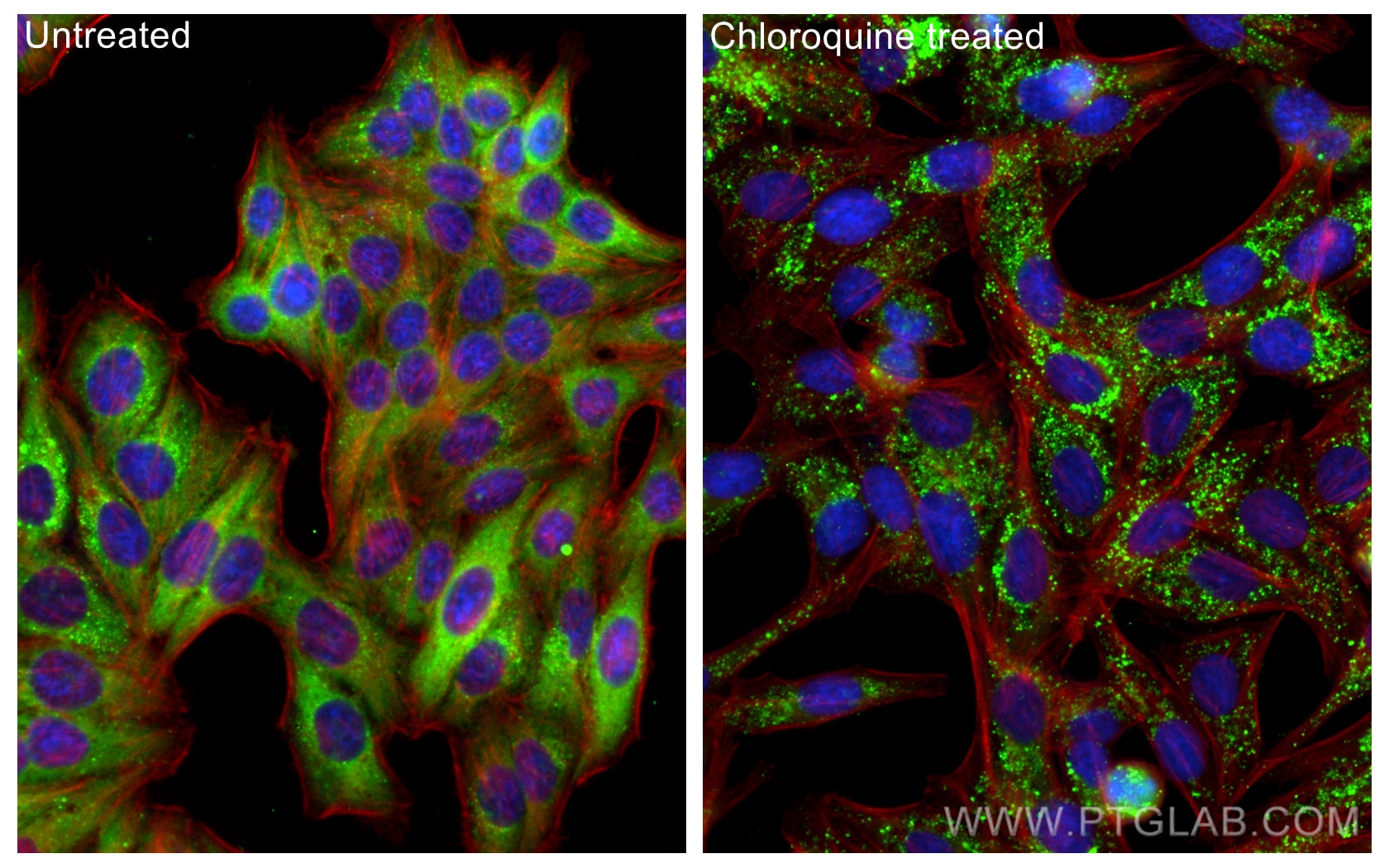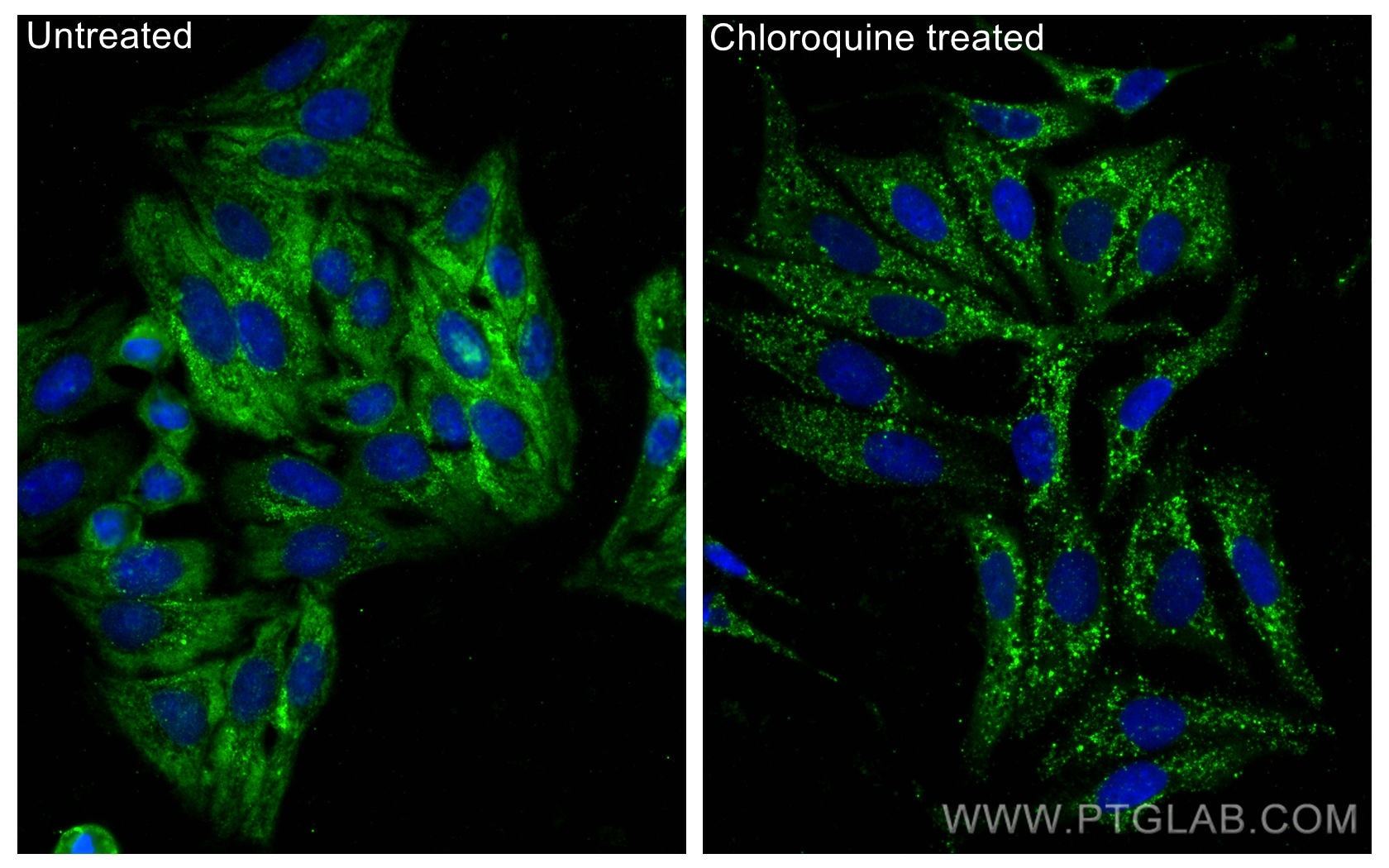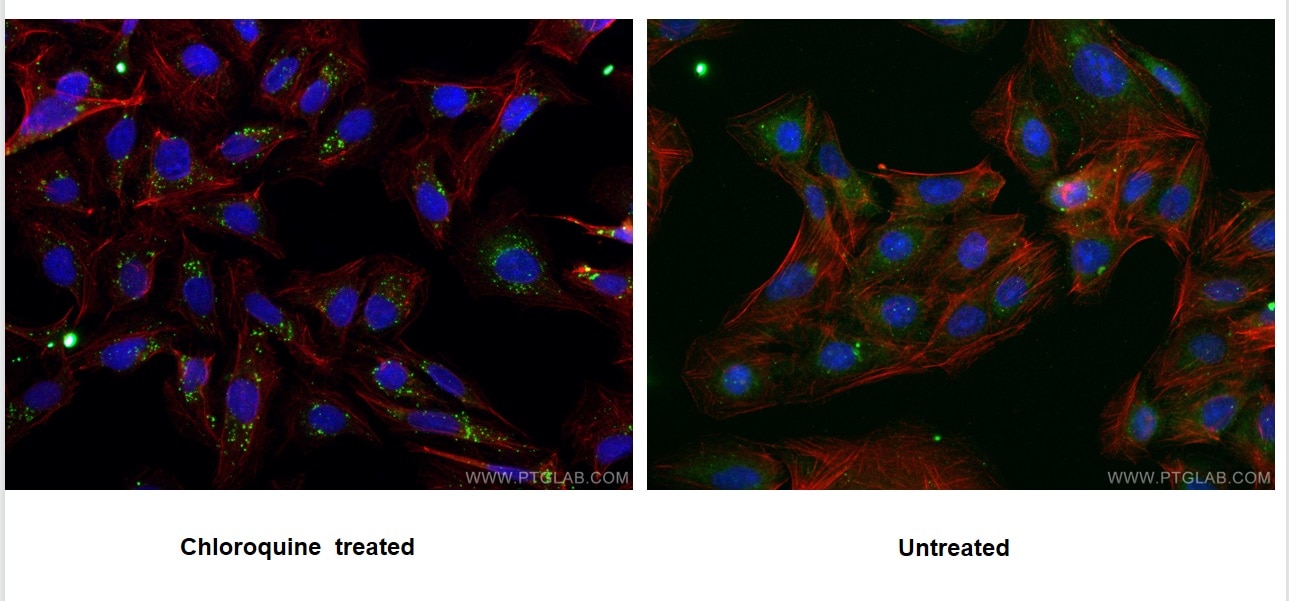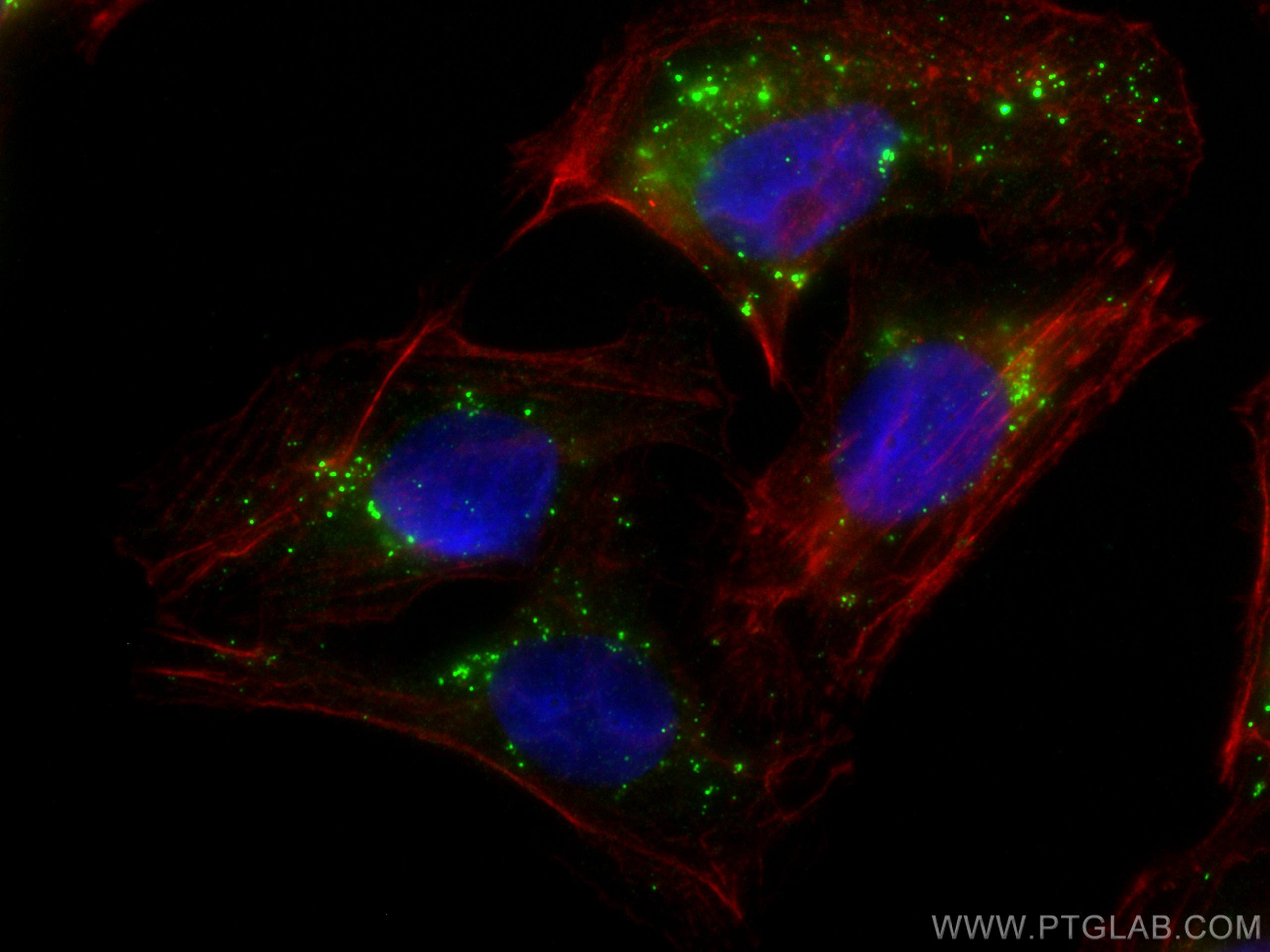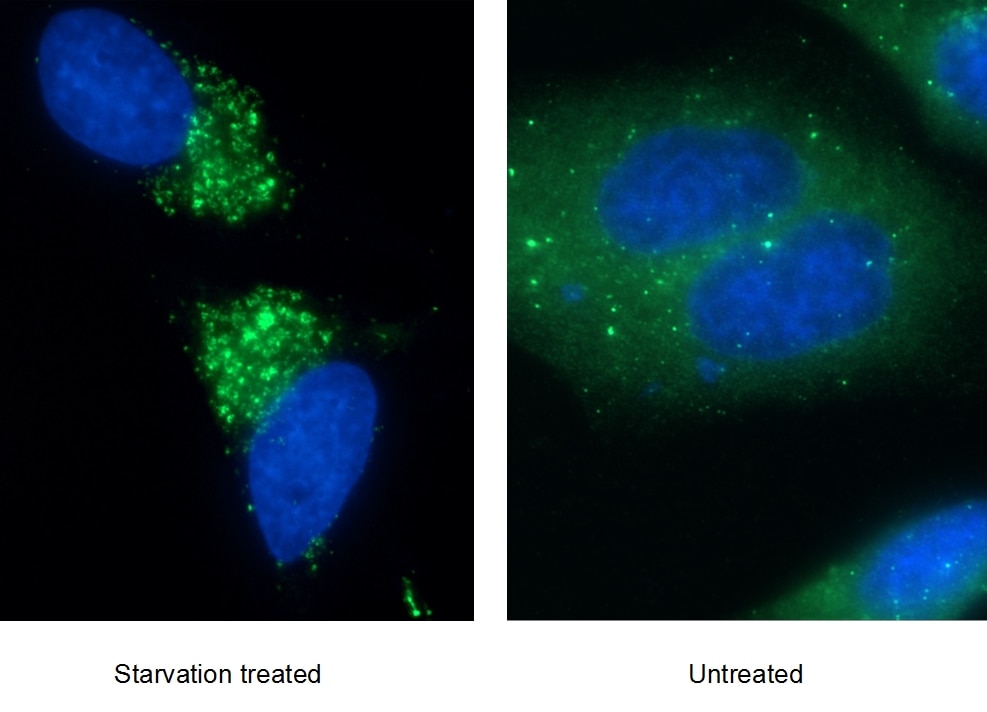Tested Applications
| Positive WB detected in | HeLa cells, U2OS cells, K-562 cells, HEK-293 cells, MCF-7 cells, HepG2 cells, Jurkat cells, L02 cells, Raji cells |
| Positive IP detected in | U2OS cells |
| Positive IHC detected in | human lung cancer tissue, human colon cancer tissue, human liver cancer tissue, human endometrial cancer tissue Note: suggested antigen retrieval with TE buffer pH 9.0; (*) Alternatively, antigen retrieval may be performed with citrate buffer pH 6.0 |
| Positive IF/ICC detected in | Chloroquine treated HepG2 cells, Starvation treated HepG2 cells, U2OS cells, Chloroquine treated U2OS cells |
Recommended dilution
| Application | Dilution |
|---|---|
| Western Blot (WB) | WB : 1:5000-1:50000 |
| Immunoprecipitation (IP) | IP : 0.5-4.0 ug for 1.0-3.0 mg of total protein lysate |
| Immunohistochemistry (IHC) | IHC : 1:2000-1:8000 |
| Immunofluorescence (IF)/ICC | IF/ICC : 1:400-1:1600 |
| It is recommended that this reagent should be titrated in each testing system to obtain optimal results. | |
| Sample-dependent, Check data in validation data gallery. | |
Published Applications
| KD/KO | See 1 publications below |
| WB | See 182 publications below |
| IHC | See 11 publications below |
| IF | See 33 publications below |
| IP | See 4 publications below |
| CoIP | See 5 publications below |
Product Information
66184-1-Ig targets P62/SQSTM1 in WB, IHC, IF/ICC, IP, CoIP, ELISA applications and shows reactivity with human samples.
| Tested Reactivity | human |
| Cited Reactivity | human, pig, canine, monkey, chicken, bovine, hamster |
| Host / Isotype | Mouse / IgG2b |
| Class | Monoclonal |
| Type | Antibody |
| Immunogen |
CatNo: Ag13131 Product name: Recombinant human P62;SQSTM1 protein Source: e coli.-derived, PGEX-4T Tag: GST Domain: 1-440 aa of BC017222 Sequence: MASLTVKAYLLGKEDAAREIRRFSFCCSPEPEAEAEAAAGPGPCERLLSRVAALFPALRPGGFQAHYRDEDGDLVAFSSDEELTMAMSYVKDDIFRIYIKEKKECRRDHRPPCAQEAPRNMVHPNVICDGCNGPVVGTRYKCSVCPDYDLCSVCEGKGLHRGHTKLAFPSPFGHLSEGFSHSRWLRKVKHGHFGWPGWEMGPPGNWSPRPPRAGEARPGPTAESASGPSEDPSVNFLKNVGESVAAALSPLGIEVDIDVEHGGKRSRLTPVSPESSSTEEKSSSQPSSCCSDPSKPGGNVEGATQSLAEQMRKIALESEGRPEEQMESDNCSGGDDDWTHLSSKEVDPSTGELQSLQMPESEGPSSLDPSQEGPTGLKEAALYPHLPPEADPRLIESLSQMLSMGFSDEGGWLTRLLQTKNYDIGAALDTIQYSKHPPPL Predict reactive species |
| Full Name | sequestosome 1 |
| Calculated Molecular Weight | 48 kDa |
| Observed Molecular Weight | 62 kDa |
| GenBank Accession Number | BC017222 |
| Gene Symbol | P62/SQSTM1 |
| Gene ID (NCBI) | 8878 |
| RRID | AB_2881579 |
| Conjugate | Unconjugated |
| Form | Liquid |
| Purification Method | Protein A purification |
| UNIPROT ID | Q13501 |
| Storage Buffer | PBS with 0.02% sodium azide and 50% glycerol, pH 7.3. |
| Storage Conditions | Store at -20°C. Stable for one year after shipment. Aliquoting is unnecessary for -20oC storage. 20ul sizes contain 0.1% BSA. |
Background Information
Sequestosome 1 (SQSTM1/p62) is a multifunctional adaptor protein implicated in selective autophagy, cell signaling pathways, and tumorigenesis. p62 has been implicated in shuttling ubiquitinated and sometimes aggregated proteins for autophagic degradation. As a autophagy-specific substrate, p62 is degraded during the autophagic process, which makes intracellular level of p62 as a marker for autophagy flux. p62 is at the cross-roads of several signaling pathways including Ras/ Raf/ MAPK and NFκB and plays important role in cancer. p62 is a component of inclusion bodies/ protein aggregates found in human diseases, including Huntington's disease, Alzheimer's disease, Parkinson's disease in the brain, and nephropathic cystinosis in kidney (PMID: 22074114, 22860231, 22714671). The molecular weight of p62 is predicted as 48/ 38 kDa, while western blot analyses using this antibody demonstrate the major band around 60-62 kDa in various tissues.
Protocols
| Product Specific Protocols | |
|---|---|
| IF protocol for P62/SQSTM1 antibody 66184-1-Ig | Download protocol |
| IHC protocol for P62/SQSTM1 antibody 66184-1-Ig | Download protocol |
| WB protocol for P62/SQSTM1 antibody 66184-1-Ig | Download protocol |
| Standard Protocols | |
|---|---|
| Click here to view our Standard Protocols |
Publications
| Species | Application | Title |
|---|---|---|
Gastroenterology Proteomic characterization identifies clinically relevant subgroups of gastrointestinal stromal tumors | ||
Acta Neuropathol Upstream open reading frame with NOTCH2NLC GGC expansion generates polyglycine aggregates and disrupts nucleocytoplasmic transport: implications for polyglycine diseases. | ||
Nat Commun IL-6 regulates autophagy and chemotherapy resistance by promoting BECN1 phosphorylation. | ||
Mol Neurodegener Collusion of α-Synuclein and Aβ aggravating co-morbidities in a novel prion-type mouse model | ||
J Cell Biol CHMP2B regulates TDP-43 phosphorylation and cytotoxicity independent of autophagy via CK1. | ||
Theranostics The c-Myc/miR-27b-3p/ATG10 regulatory axis regulates chemoresistance in colorectal cancer. |
Reviews
The reviews below have been submitted by verified Proteintech customers who received an incentive for providing their feedback.
FH Eleonora (Verified Customer) (04-12-2024) | The antibody unfortunately did not work in IF, no signal. In western blot the band is present but very faint.
|
FH David (Verified Customer) (01-13-2020) | Used for immunocytochemistry. Low signal in control cells, but very strong response when treated with bafilomycin A. Very obvious p62 puncta in cells.
|

